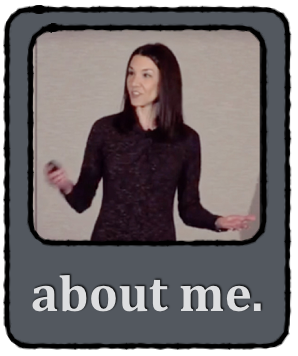 From 2008-2011, I served as a “math coach” in Pennsylvania. The position was grant-funded, and there were no guarantees (or expectations, frankly) that the position would last beyond the first year. The timing was perfect – I had been at home with my son for his first 3 little years, and we *both* were ready for a change of scenery. As he toddled off to daycare/preschool, I read “The Math Coach Field Guide” while I waited to be approved by the school board and start my new job. I was pumped!
From 2008-2011, I served as a “math coach” in Pennsylvania. The position was grant-funded, and there were no guarantees (or expectations, frankly) that the position would last beyond the first year. The timing was perfect – I had been at home with my son for his first 3 little years, and we *both* were ready for a change of scenery. As he toddled off to daycare/preschool, I read “The Math Coach Field Guide” while I waited to be approved by the school board and start my new job. I was pumped!
My role was very specific, which helped a *lot* in defining my days. I worked primarily with teachers who were elementary certified and were teaching Pre-Algebra to grade 6 advanced students or Algebra 1 to grade 7 advanced students. I was there to help with content, lesson planning, creating resources and assessments, co-teaching, and modeling lessons. I administered, scored, and tracked assessment data. I worked with some of the kindest and most cooperative teachers around, from new-to-the-profession teachers to I’m-retiring-next-year teachers. We had a 1:1 laptop initiative at the time, which made the experience that much more amazing. The students were “our” students. Though I didn’t have my own classroom, I still felt that sense of relationship and ownership since my role was so focused.
We had a 6-day-cycle model, so I’d spend 3 consecutive days at each of the two schools I served, staying in contact with the teachers at the other campus, and sharing resources with them across town. It was a precious time in my career.
Year 3, the grant funding disappeared, but a unique set of circumstances found me serving at a third middle school in the same district the following fall. I thought my time of employment was ending, and instead, I had a new batch of teachers to work with. Every morning, I had my very own Algebra 1 class first period, and the rest of my day was dedicated to a math coaching role. This time, I worked with all math teachers in grades 6, 7 and 8 who’d have me, rather than only working with Pre-Algebra and Algebra 1. I worked in an emotional support class once a week and was treated like a celebrity. I worked with teachers who would love nothing more than for my perky self to exit their not-so-sunny space, teachers who embraced co-teaching from day 1, and teachers who were happy to have me stay by the sidelines as they ran 100% of the show 100% of the time. The classroom is a very personal space, and my role varied greatly from classroom to classroom, but I did my best.
I also started to remember how much I adored having my own classroom. That crew of Algebra 1 students that was *all mine* made me think that if my “coaching” days came to an end, it would be a welcome transition for me. And that’s exactly what happened the following year.
I credit my years as a “math coach” and my supervisor at the time, Julie Victory, with helping me see the value in blogging. I was required to keep a log of my days as documentation, and what began as merely a recorded schedule morphed into a reflective document that I still enjoy reading every now and again. The only math blogger I knew of during that timeframe was Dan Meyer, and even though I was composing a daily log, I never saw my daily happenings as worth sharing with a readership. In time, as blogging seemed to become more of a “thing” I landed here.
Every educator in a “coaching” position has a unique role and set of circumstances. I’ve wanted to compare notes with others who serve in this type of position, so I tossed a Google Form out to Twitter.
* Responders serve anywhere from 1 to 40 schools.
* About 1/3 of responders also teach their *own* students while roughly 2/3 of responders do not teach any classes of their own. (I always wonder about this – for me, having one class of my own every day made me feel so much more connected)
* Responders have many responsibilities!
Here’s the Google spreadsheet with snappy graphs in the tabs (compliments of @MrVaudrey – colorful charts are kind of his thing). At the time of this post, I had 13 unique responders, and I hope more folks contribute. I’d follow every one of these fine folks on Twitter if I were you. 🙂 Still want to contribute to the spreadsheet? Here’s the Google Form.
















Very interesting. We had similar beginnings as I also started as a math coach via a 3-year grant and I also recall reading “The Math Coach Field Guide.” I remember also being at a place where the job could disappear after each year. It wasn’t the most reassuring time of my life. Glad to see we both gained valuable experiences through the process.
This is very interesting indeed!
Thanks Cathy!
It’s enlightening to hear about your days as a coach. As a classroom teacher, our math coach was assigned only to our school and was heavily involved with our curriculum planning and daily lessons. Occasionally she’d come in and model certain lessons for us. This was invaluable.
Take care,
-Dawn
Thanks for your comments, Dawn! Of all the PD out there, I think having the right person in an embedded position (like a coaching role) has the potential for the most classroom impact! Thankful for the awesome coaches out there shaping math education!
Best,
Cathy